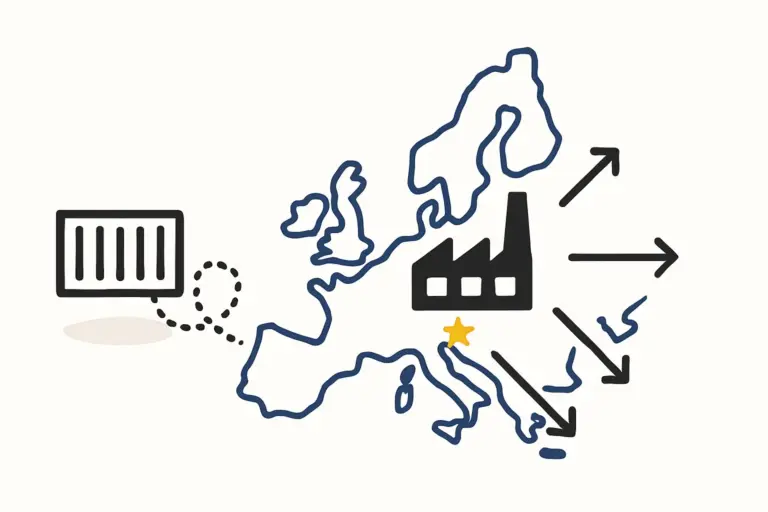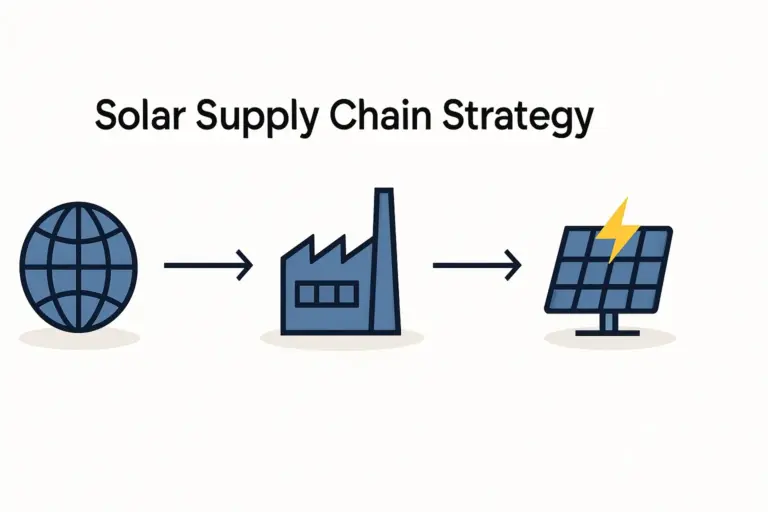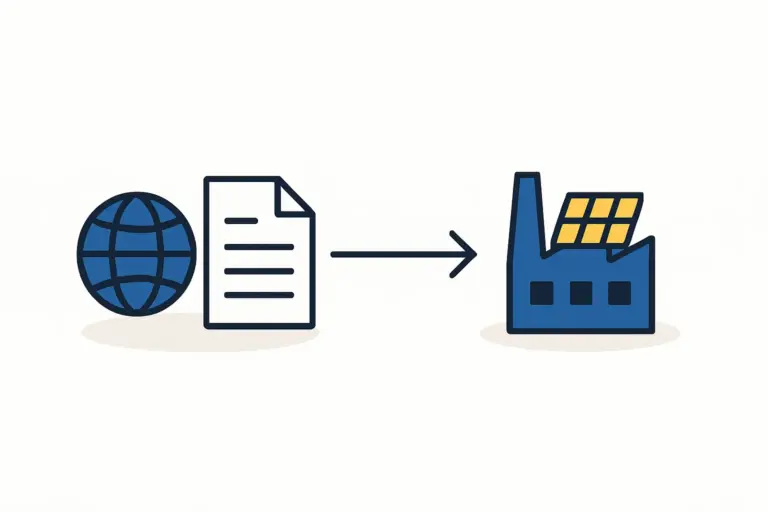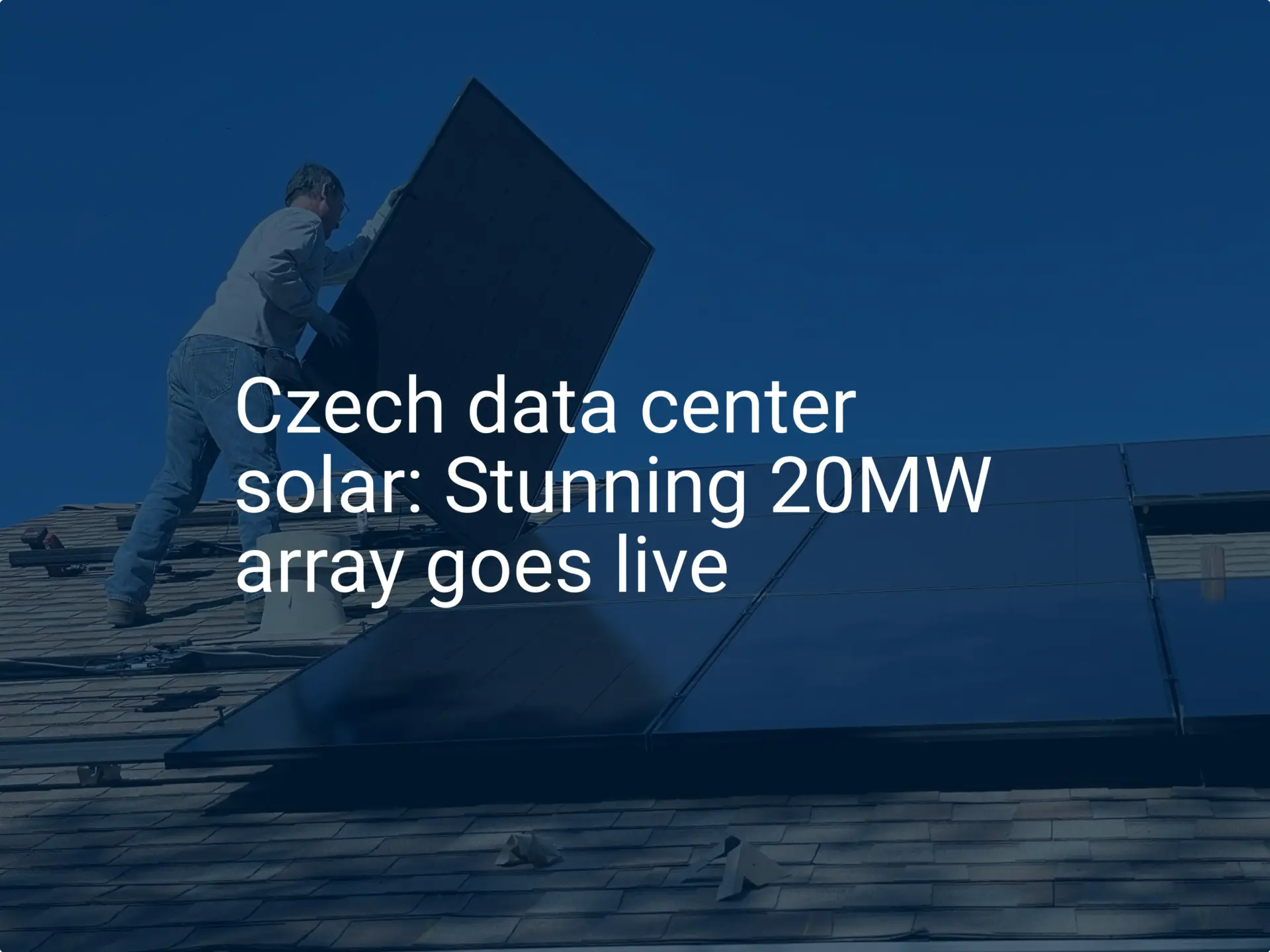For entrepreneurs planning to enter the solar manufacturing sector, managing the supply chain for critical components is a fundamental challenge. The conventional approach is to source materials like glass and aluminum frames from established hubs in Asia. However, this reliance on long-distance logistics introduces significant costs, risks, and complexities—especially for a new venture.
A more strategic approach involves examining the industrial ecosystem of the planned factory location. In Central Europe, the Czech Republic offers a unique opportunity. Its highly developed automotive and glass industries provide a robust, local source for two of the most critical and cumbersome components in solar module production. Leveraging these established supply chains can create a substantial competitive advantage when setting up a solar module production line.
The Challenge of Global Supply Chains in Solar Manufacturing
A solar module’s Bill of Materials is typically sourced globally. While components like solar cells have a high value-to-weight ratio that makes them suitable for air freight, other key materials do not. Specifically, solar-grade glass and extruded aluminum frames are heavy, bulky, and relatively low-cost per kilogram.
Sourcing these materials from overseas suppliers presents several business challenges:
- High Logistical Costs: Shipping heavy materials across continents can consume a significant portion of the component cost.
- Increased Lead Times: Long sea voyages extend production timelines and require holding larger, more expensive inventories.
- Risk of Damage: The probability of breakage or damage to materials like glass increases with every handling stage of a long transit.
- Supply Chain Volatility: Global events can disrupt shipping lanes and create unforeseen delays, halting production.
These factors can strain the financial model of a new manufacturing plant and create operational instability.
Czechia’s Industrial Ecosystem: A Strategic Location
The Czech Republic’s standing as a modern industrial powerhouse is no accident. Its central location, skilled workforce, and deep industrial heritage create an ideal environment for advanced manufacturing. For a solar enterprise, this translates into direct logistical and operational benefits.
The country serves as a crossroads for European commerce, with seamless integration into the supply chains of major economies like Germany. This proximity reduces transit times for finished goods and simplifies the sourcing of specialized equipment or materials from Western Europe.
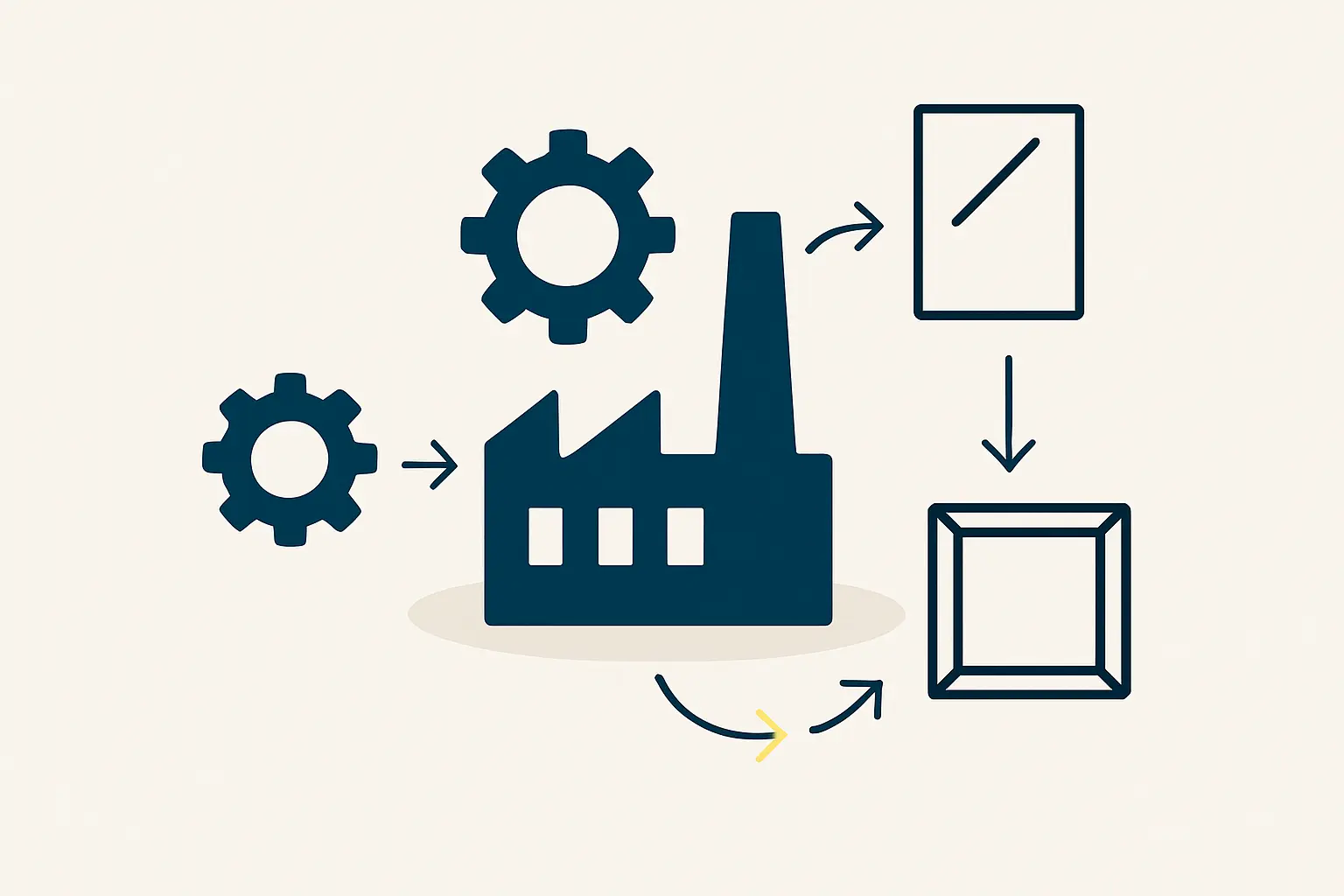
This strategic positioning helps manufacturers minimize transportation risks and costs, which is particularly crucial when dealing with heavy and fragile components.
Tapping the Automotive Sector for Aluminum Frames
The Czech Republic is one of Europe’s leading automotive manufacturing hubs, home to major original equipment manufacturers (OEMs) like Škoda Auto (part of VW Group), Hyundai, and Toyota. This industry is supported by a dense network of Tier 1 and Tier 2 suppliers specializing in high-precision components.
This automotive expertise is directly relevant to solar module manufacturing. The aluminum frames that provide structural integrity to a solar panel require precise extrusion and finishing—processes at which the automotive supply chain excels.
Key advantages include:
- Established Expertise: Czech suppliers have decades of experience producing high-tolerance aluminum parts for an industry with exceptionally high quality standards.
- Advanced Technology: The sector employs modern, automated production lines capable of delivering large volumes consistently.
- Quality Assurance: Automotive suppliers operate under rigorous quality management systems (e.g., IATF 16949), ensuring a level of process control that often exceeds the requirements for solar frames.
Engaging with these local suppliers allows a new solar manufacturer to secure a reliable source of high-quality frames without the costs and delays of international shipping. This makes the complete Bill of Materials (BOM) for solar panel manufacturing more resilient and cost-effective.
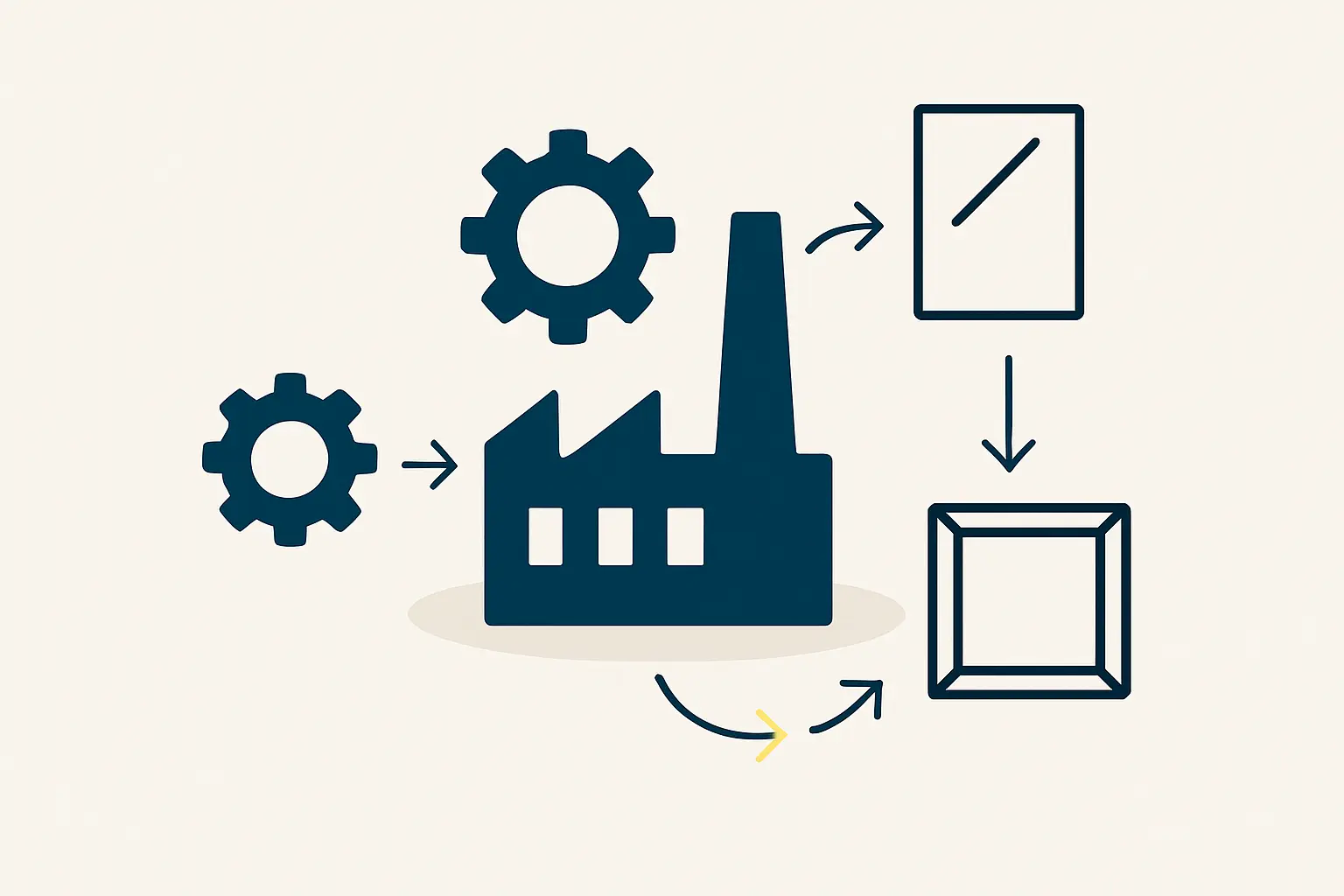
The Glass Industry: A Clear Path to High-Quality Solar Glass
The Czech glassmaking tradition, historically famous for ‘Bohemian Crystal,’ has evolved into a high-tech industry. Today, the country is home to advanced float glass production facilities operated by global leaders like AGC Glass Europe and Guardian Glass.
These plants produce the foundational material for solar glass. Turning raw float glass into a finished solar component involves cutting, edge finishing, and tempering—all capabilities that are either available or can be readily developed within this mature industrial ecosystem.
For glass, the logistical argument for local sourcing is even stronger than for aluminum. Glass is heavier and more fragile, making long-distance transport both expensive and risky. Sourcing locally offers:
- Drastically Reduced Shipping Costs: Eliminating transcontinental freight for the single heaviest component of a solar module delivers a direct, substantial cost saving.
- Lower Risk of Breakage: Shorter, simpler supply lines mean fewer handling steps and a lower probability of costly damage.
- Just-in-Time Delivery: Proximity to the supplier allows for more flexible inventory management, reducing the need for large, capital-intensive warehousing.
Based on experience from J.v.G. turnkey projects, securing a stable, local supply of glass and frames can significantly improve the financial viability and lower the operational risk of a new factory.
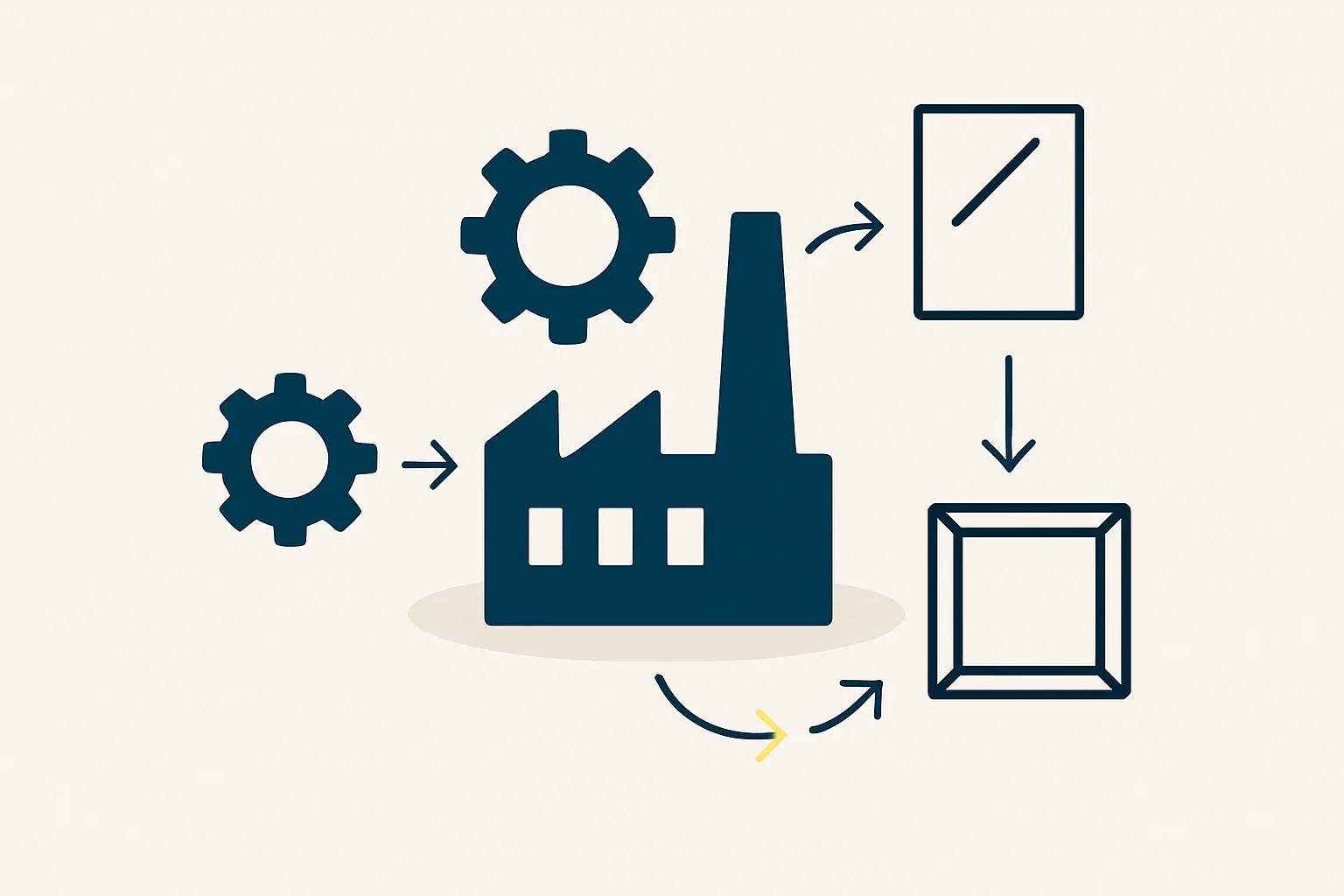
Integrating Local Sourcing into Your Business Plan
Adopting a local sourcing strategy from the outset significantly improves the business case for a new solar factory. Reduced logistics costs, inventory requirements, and supply chain risk directly bolster the projected return on investment.
The benefits become particularly apparent when calculating the total investment for a solar factory. Lower initial working capital is needed for inventory, and recurring operational costs associated with freight are minimized. This creates a more resilient and competitive business model, especially in the crucial early years of operation.
While this approach requires due diligence and relationship-building with local suppliers, the effort yields a foundational strength that a reliance on distant suppliers cannot match.
Frequently Asked Questions (FAQ)
Why is local sourcing for glass and frames so important?
Glass and aluminum frames are the heaviest and bulkiest components of a solar module. Sourcing them locally minimizes transport costs, reduces the risk of damage in transit, shortens lead times, and builds a more resilient supply chain that is less vulnerable to global disruptions.
Are automotive-grade aluminum suppliers suitable for solar frames?
Yes, in many cases, they are ideal partners. The automotive industry’s standards for precision, consistency, and quality management are extremely high. An established supplier of aluminum components for cars can typically meet or exceed the technical specifications for solar module frames with ease.
Can all solar module components be sourced in Czechia?
While it isn’t feasible to source all components locally—solar cells, for example, are predominantly manufactured in Asia—securing the heaviest and most transport-sensitive materials from local suppliers is the key strategic advantage. This hybrid approach combines the strengths of global and local supply chains.
What are the first steps to engaging with these local suppliers?
The process begins with identifying potential partners and conducting thorough due diligence. This involves technical audits to confirm their capabilities, negotiating supply agreements, and establishing clear quality assurance protocols. For entrepreneurs new to the industry, platforms like pvknowhow.com offer structured guidance to navigate this process.
A Foundation for a Resilient Solar Manufacturing Business
An entrepreneur’s choice of factory location is a critical decision. Looking beyond simple real estate or labor costs to the richness of the local industrial ecosystem can build a lasting competitive advantage. The Czech Republic’s powerful automotive and glass industries offer a unique opportunity to de-risk a new solar manufacturing venture, creating a more robust, cost-effective, and resilient operation from day one.


